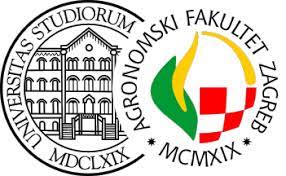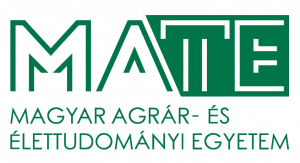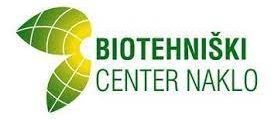1.3 Concept of the Farmer Field School (FFS)
General learning principles of FFS
Learning by doing
Participants/farmers do not change their behavior and practices just because someone tells them what to do or how to change. They learn better by experience than by passively listening to lectures or demonstrations. That is why it is all about learning by doing and trying out new ideas and practices on the ground.
The field is the learning ground
The field is the main learning space around which all activities are organized. Farmers learn directly from what they observe, collect and experience in their surroundings, not from textbooks. Participants also prepare their own learning material (drawings, etc.) based on what they observe.
Competences, not information, is the goal
The focus is on developing skills and competences, not on learning about new technological possibilities. The emphasis is on understanding the basic science behind the different aspects of the agroecosystem so that farmers can implement the innovation process themselves, i.e. to understand the "why" behind the "how". Technologies are not taught as model solutions but as examples of how to support different agro-ecological processes.
Experiential learning
The basic assumption is that learning is always based on prior experience, which is unique to everyone, and that any attempt to promote new learning must take experience into account in some way. Therefore, exchange and discussion between participants is a fundamental element of participatory and experiential learning.
Discovery based learning
Technical information is presented as much as possible through discovery-based exercises rather than lectures. Discovery-based learning is an essential component as it helps participants to develop a sense of ownership and gain confidence in their ability to replicate activities and results on their own. These exercises usually last between 1 and 3 hours to fit into a regular session and address the learning topic of the day in a practical way, for example: building an insect zoo to observe the behavior and interactions of different insects, digging soil pits to analyze species and soil layers, breeding ticks to understand the life cycle, etc. Groups learn a variety of analytical methods to help them acquire the ability to identify and solve problems. There is no single definition of what constitutes discovery-based exercise, but certain principles form a framework:
- The learning field provides the main learning materials and any exercise should have its roots in the farmers’ fields
- Activities are based on what is happening in farmers’ field at this time. One cannot discover something if it happened in the past or will happen in the future.
- Any activity should build on farmers’ experiences of the topic, i.e. include discussion and sharing among participants in order to gain insights from local practices, as well as identify technical gaps.
- The people who are discovering are primarily the farmers. The purpose is to help participants remember more of what they are learning; therefore, exercises are designed for practical discovery rather than only by seeing or hearing something.
Participants owned curriculum
Farmers, not the facilitator, decide which topics are important to them and what they want to cover and address in their curriculum. The facilitator only guides them through their learning process by creating opportunities for participants to engage with new experiences. This ensures that the information is relevant and tailored to the actual needs of the participants. Training activities should be based on existing gaps in the knowledge and skills of the community and consider the community's level of understanding. Each group is different and has its own needs and realities. As participants develop their own content, each of them is therefore unique. As agriculture is usually closely linked to other aspects of livelihoods, the curriculum will also include non-agricultural issues identified by farmers, such as human health, nutrition, environmental issues, etc. These issues are included as specific topics in the weekly meeting schedule. Another feature of the curriculum is that it follows the natural cycle of its subject, i.e. from "seed to seed" or from "egg to egg". Thus, farmers can discuss and observe aspects in the field in parallel with what is happening in their fields, e.g. learning about weeds takes place when it is weeding time, etc.
Group trials and experimentation
Innovation and experimentation are essential components of the learning process and offer opportunities for learning and capacity building among participants to continuously adapt to change and improve the way they manage their resources. Group-managed experiments usually become a meeting place and a space for group learning.
In the learning design phase, an experimental topic is identified, followed by decisions on different technologies or practices to be explored and compared to address a particular constraint. These may be technologies derived from research, or simply innovations by farmers or local practices. Typical experiments might be trials and comparisons of new crop varieties, options for improved soil management, housing and more.
Facilitation, not teaching
Facilitators guide the learning process, not by teaching, but by mentoring and supporting participants to take responsibility for their own learning. In discussions, the facilitator contributes, facilitates and enables the group to reach consensus on what actions to take. Researchers, subject-matter experts and external experts are occasionally invited to provide technical support to the groups as needed. During the sessions, the facilitator is expected to take the final role and let the participants lead the learning activities, with the facilitator being more present as a mentor and guide to the process. Facilitators should not answer technical questions directly but instead try to probe and ask counter-questions in order to stimulate reflection and learning. In discussions on technical issues, the facilitator tries to moderate a discussion in which most of the information is provided by the group members. To facilitate everyone's participation, small group discussions are usually used, where participants first discuss among themselves in groups of 3-4 and then discuss the issue in plenary.
Systematic learning process
The group follows the same systematic learning process, based on observation and analysis of field experimental activities. Farmers meet weekly (most annual crops and livestock), twice a week (some long-term crops) or monthly (most perennial crops) according to a regular schedule set by the group members. Farming-related topics are intertwined with the group's organizational aspects and group dynamics to form learning sessions, which are usually weekly and last half a day. All strenuous activities, such as taking care of the plots or animals, sowing, weeding, watering, feeding, etc., take place before or after the learning meetings, or in specially planned meetings on the working day. Between the establishment of the group and the start of the regular learning cycles, there is a period of group establishment, usually referred to as fieldwork. This period includes the formation and organization of the group, the definition of problems, the setting up of on-farm experiments, which usually takes between one and three months.
Special topics of the day
Technical information to complement ‘learning by doing’ and experimentation in the field is usually the special topic of the day. This is an opportunity for the facilitator, researcher or expert to provide the technical information needed for a general understanding of the topic and to even out the knowledge among the participants. The topic of the day is usually related to agriculture but can be any topic. Participants may have other problems and feel the need to discuss the issues. If the facilitator does not have specific expertise, external experts or other community members can be invited to lead the discussion. The facilitator's role is to focus on a particular topic at a time that is most convenient for the group participants.
Agro-Eco System Analysis
The cornerstone of the FFS approach is Agro-Ecological System Analysis (AESA), which is a field-based analysis of the interactions between crops/livestock and other biotic and abiotic factors that co-exist in the crop/livestock field. The purpose of AESA is to teach farmers to make regular observations in the field, to analyze problems and opportunities that arise in the field, and to improve decision-making skills for farm management. The analysis follows a cycle of observation, analysis and action. By conducting AESA on a regular basis (usually weekly, fortnightly or monthly, depending on the topic of the study), farmers develop a mental checklist of indicators to observe when monitoring on-farm practices. The process is holistic, and farmers work in sub-groups of 4 to 5 people under the guidance of a facilitator to enhance the participatory process. Typically, this exercise lasts about 2-3 hours and is carried out throughout the season or learning cycle, so that the problems and decisions studied overlap with similar issues in the participants' own fields, increasing motivation to learn.
Group Organization
Empowerment is facilitated through collective action by providing well-organized groups in which participants have the opportunity to practice different aspects of management and leadership. A detailed timetable and group norms and rules are usually followed to enforce discipline and structure. Groups develop their own vision and learning objectives. The ideal number of members is 20-30 farmers of mixed gender. To ensure participation of all, sub-group arrangements are used where small groups of 3-5 individuals are formed at the beginning of the learning cycle. Each sub-group has its own responsibilities, usually in rotation, such as hosting and running the weekly meetings, hence the term 'host group'. These sub-groups also carry out core field activities such as AESA, and often each group is responsible for one treatment option in the experimental field. By choosing their own names, slogans and mottos, these sub-groups have their own identity and establish themselves. Sometimes groups are further encouraged to register with local authorities and open a bank account for sustainability after the learning cycle is over, when the group can move on to other activities. The group should have an established leadership structure with democratically elected officers and group rules and statutes.
Group dynamic exercises
The FFS group uses dynamic exercises such as energizers, drama, song and dance to create a pleasant and informal learning environment. These exercises facilitate learning and create a space for reflection and sharing. They also enhance capacity building in the areas of communication skills, problem solving and leadership skills. In addition, group dynamics can be an effective way to address sensitive topics such as domestic violence, alcoholism, as well as to remember key professional messages in oral form. Each learning session includes a group dynamics component, usually led by the host team of the day or by any member of the group.





